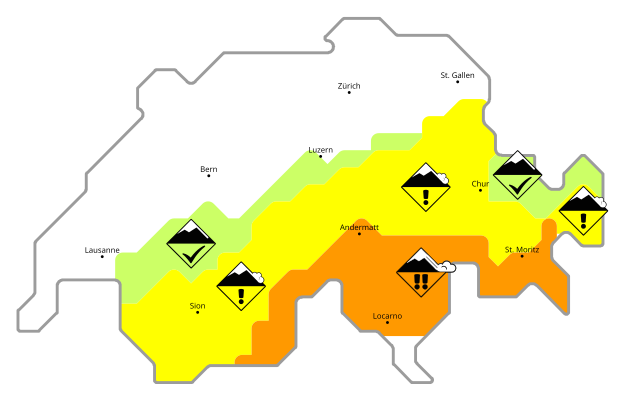15.01.2024 | Peter B. Pearman, University of the Basque Country | WSL News
Genetic diversity is crucial if species are to adapt to climate change. An international study co-conducted by the Swiss Federal Institute for Forest, Snow and Landscape Research WSL shows that current efforts to monitor genetic diversity in Europe are incomplete and insufficient. The researchers propose a novel approach for identifying areas that are particularly important for the conservation of genetic diversity. These areas should be protected.
Every individual on our planet is distinguished from its fellow creatures by small differences in its genetic material. This genetic diversity is a prerequisite for plants and animals to be able to adapt when the environment changes. Otherwise, there is a risk of local extinction, or the species must migrate to other habitats. Genetic diversity is therefore an important factor for species survival. It is a fundamental component of biodiversity but has generally been neglected so far. In the frame of the international Convention on Biological Diversity, which Switzerland also signed, the member states emphasized in 2002 the importance of protecting the genetic diversity of wild species.
An international study, published in Nature Ecology & Evolution, and in which WSL researchers were involved, has now investigated in which European countries and for how many species genetic diversity has been monitored. The results show that such efforts in Europe are incomplete and need to be supplemented. "Such long-term studies, which record changes in genetic diversity over time, mostly concern species of commercial interest. Corresponding studies on wild species that are dependent on conservation measures are largely missing," explains WSL biologist Rolf Holderegger, co-author of the study.
Increased monitoring particularly in south-eastern Europe
The study covered all monitoring programs in Europe in which genetic diversity is surveyed repeatedly. It showed that greater efforts are needed in south-eastern Europe, especially in Turkey and the Balkans. "Without a better monitoring of genetic diversity in Europe, we risk losing important genetic variants for the future, because we don’t know these variants yet," says Peter Pearman, lead author of the study and former employee of the University of Lausanne and WSL. Improved monitoring would make it possible to detect areas favorable to these genetic variants in the future, and to protect the corresponding habitats. This would contribute to preserving genetic diversity. Many species, such as the European beech or chestnut, also provide invaluable services to humans, for example in terms of water purification, climate regulation or regarding soil stability.
The study incorporated the efforts of 52 scientists who represent 60 universities and research institutes from 31 countries. The results suggest that European genetic diversity monitoring programs should be adapted systematically. Global warming is exerting great pressure on many species in Europe, especially where species are reaching their climatic limits, for example because it is becoming too hot or too dry for them.
The ability of species to cope with greater heat or drought is a decisive factor for whether a species survives locally or not. In climatically marginal regions, it is therefore most urgent to measure genetic diversity to assess the chance of survival of the species concerned and to maintain the broadest possible basis of genetic diversity. This will enable better land-use planning and increased support for ecosystem conservation and restoration actions. In doing so, the persistence of species and the services they provide are fostered.

Contact German and English
Contact English
Peter B. Pearman, peter.b.pearman@gmail.com
Source
Peter Pearman, Olivier Broennimann, …, Antoine Guisan and Mike Bruford. Monitoring species’ genetic diversity in Europe varies greatly and overlooks potential climate change impacts, Nature Ecology & Evolution, 2024.
Copyright
WSL and SLF provide image and sound material free of charge for use in the context of press contributions in connection with this media release. The transfer of this material to image, sound and/or video databases and the sale of the material by third parties are not permitted.
